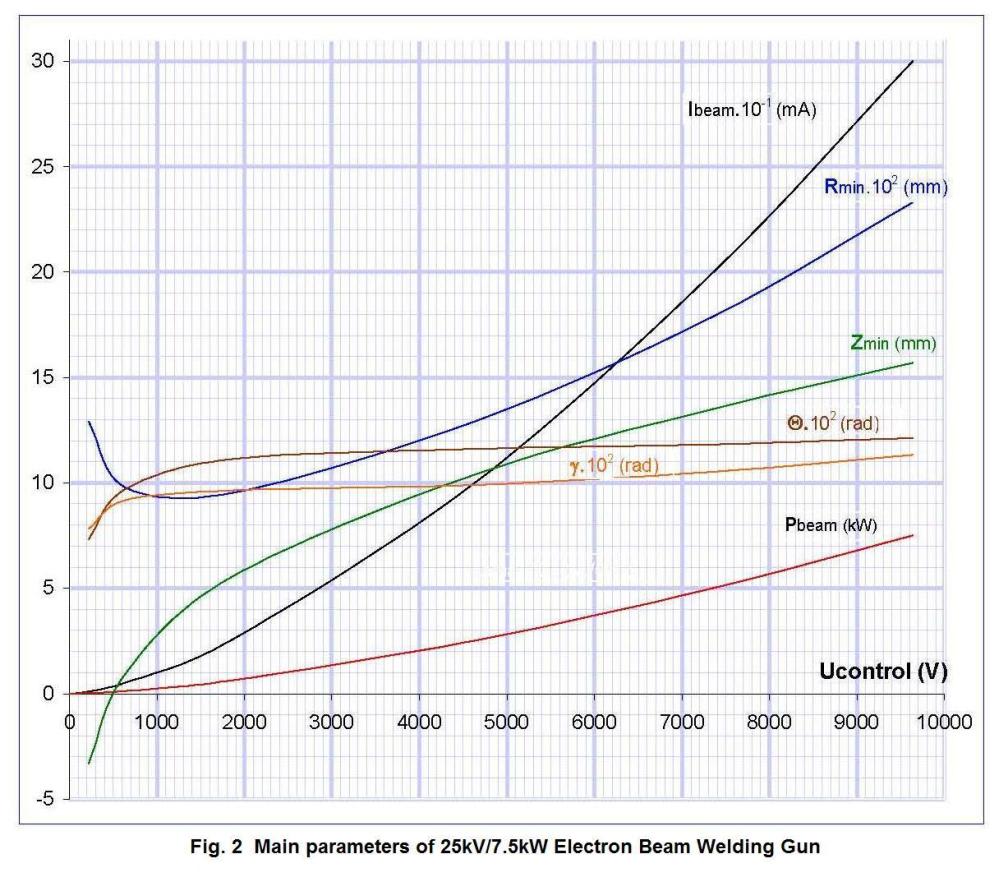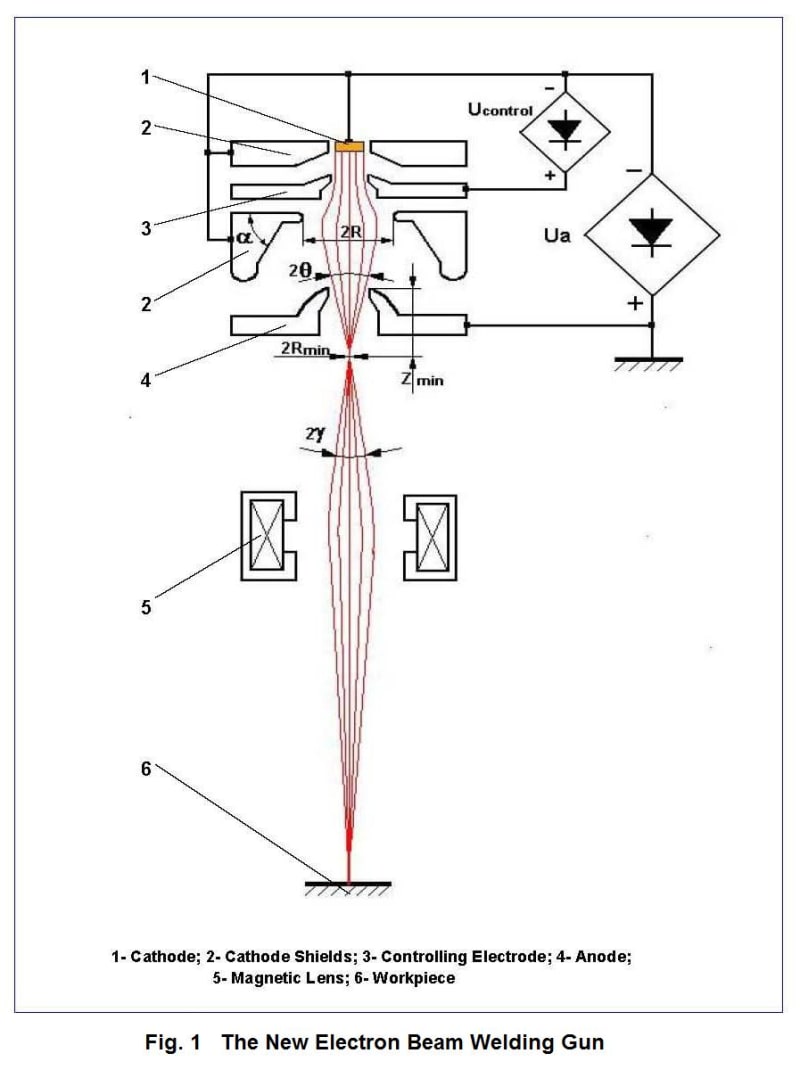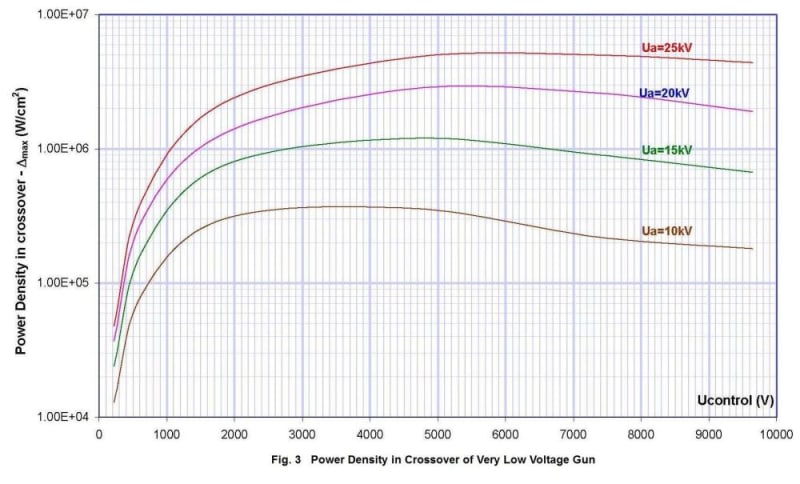It can be applied to the entire range of acceleration voltages. The main characteristic of the new gun is that the control and stabilization of the welding current is obtained by connecting the controlling electrode to a positive potential with reference to the cathode. The acceleration electrodes structure additionally comprises, in comparison to the triode gun, a supplementary electrode, placed between the controlling electrode and the anode and connected to same potential as the cathode. Thus, in case a discharge is triggered, the welding current will tend to decrease and not to increase, hence eliminating the possibility of damaging the welded parts, despite the use of very sophisticated and expensive means of active protection at the high voltage power source. According to the proposed solution it is enough to rapidly intervene at the low power control source. Schematic representation is shown in Fig. 1.
The new gun provides significant advantages over the classical triode type gun, including:
• Because the power regulation is achieved through positive potential control, the possibility of damaging the workpieces due to accidental discharge occurred in the gun is eliminated in a natural way, bringing higher operational stability;
• High performance welding equipment is obtained through the use of gun power supplies having minimized stored energy, of frequencies higher than network frequency and of fast overcurrent tripping devices in the command circuit;
• Allows the use of very low acceleration voltages (15 -25 kV) and obtaining of very high perveances when using modern cathodes with high density of the emission current (about 25 mA / mm). This can provide an amazing narrow beam geometry, with depth-to-width rations approaching that of low voltage equipment (60 kV); a similar improvement of beam geometry can also be observed for low voltage guns. Thus, in the early 2000, using an experimental device obtained by modifying a classical triode gun, I managed to successfully weld around 500 pcs. pistons for Diesel engines, made of special AlSi Mg alloy, with diameters of 175 mm and penetrations of 40 and 50 mm, at 15kW / 50kV;
• By reducing the size of the cathode, especially for low and very low voltage beam guns, the heat dissipation inside the gun is reduced, allowing its simplification and miniaturization;
• Using very low acceleration voltages, the risk of irradiation of the maintenance staff is practically eliminated, allowing a maximal reduction of the mass of welding equipment, which makes it very convenient for applications in space activities or its mounting on robotic systems.
The additional negativation source creates a constant potential equal to about 0.01% of the accelerating voltage and represents an insignificant cost when comparing to the value of the entire equipment.
Specifications for the very low voltage guns are shown in Fig.2 and Fig.3.
Like this entry?
-
About the Entrant
- Name:Corneliu Batulescu
- Type of entry:individual
- Software used for this entry:CPO-2DS
- Patent status:patented








